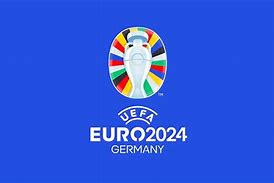激情燃烧的夜晚欧洲杯决赛精彩纷呈
614
2024 / 07 / 29
The UEFA European Championship, often referred to as the Euros, is one of the most prestigious football tournaments in the world. Held every four years, it brings together the best national teams from across Europe to compete for the coveted title of continental champion. The tournament not only showcases the highest level of football but also encapsulates the passion, drama, and unpredictability that make the sport so beloved.
The Origins and Evolution of the Euros
The idea of a panEuropean football competition was first conceived by Henri Delaunay, the general secretary of the French Football Federation, in 1927. However, it wasn't until 1960 that the inaugural tournament took place in France, with the Soviet Union emerging as the firstever European champions. Since then, the Euros have grown significantly in size and stature. The tournament expanded from four teams in the first edition to 24 teams in the most recent, allowing a broader range of nations to participate and dream of glory.
The Format and the Journey to the Title
The Euros typically begin with a qualification phase, where teams compete for a spot in the final tournament. The format of the final tournament has evolved over the years, with the current iteration featuring a group stage followed by a knockout phase. The group stage sees the qualified teams divided into several groups, with the top two teams from each group, along with the four best thirdplaced teams, advancing to the round of 16. From there, the tournament follows a singleelimination format, culminating in the final match where the champion is crowned.
Iconic Moments and Legendary Players

The Euros have been the stage for some of the most memorable moments in football history. Who can forget the "Panenka" penalty by Antonin Panenka in the 1976 final, which has since become a staple in the penaltytakers' repertoire? Or the "Miracle of Bern" in 1992, when Denmark, not even initially qualified, won the tournament after being called in as a late replacement for Yugoslavia? The Euros have also seen the rise of legendary players who have etched their names in the annals of football history. Players like Michel Platini, who scored nine goals in the 1984 tournament, and Cristiano Ronaldo, the alltime top scorer in Euros history, have left indelible marks on the competition.
The Impact of the Euros on Host Nations
Hosting the Euros can be a transformative experience for a nation. It not only boosts the local economy through tourism and infrastructure development but also fosters a sense of national pride and unity. The tournament often leads to the construction or renovation of stadiums and other facilities, which can have longterm benefits for the host country's sports and entertainment sectors. Moreover, the Euros can inspire a new generation of footballers and fans, further cementing the sport's place in the cultural fabric of the host nation.
The Future of the Euros
As the Euros continue to captivate audiences around the world, discussions about its future are ongoing. Proposals to further expand the tournament or change the format are regularly debated, with the aim of maintaining the competition's relevance and appeal. Regardless of the changes that may come, the Euros will undoubtedly remain a cornerstone of the football calendar, a celebration of the beautiful game that unites nations and transcends borders.
Conclusion
The UEFA European Championship is more than just a football tournament; it is a cultural phenomenon that brings together millions of fans from different countries and backgrounds. It is a testament to the power of sport to inspire, entertain, and unite. As we look forward to the next edition of the Euros, we can be sure that it will once again provide us with moments of joy, heartbreak, and everything in between, reminding us why we love the game.
